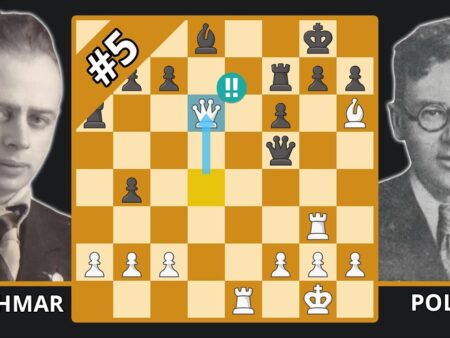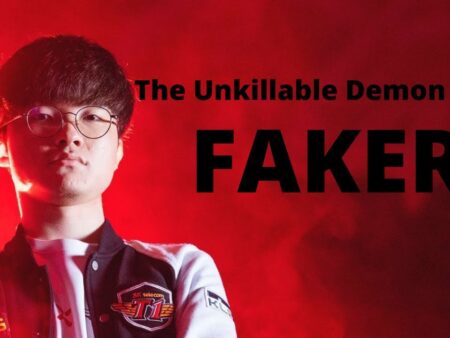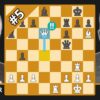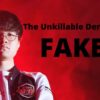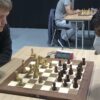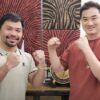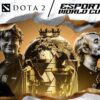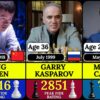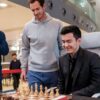The central narrative defining this year`s NBA Finals series between the Indiana Pacers and the Oklahoma City Thunder can arguably be distilled into two remarkably simple yet profound quotes shared recently.
The first comes from Indiana Pacers center Myles Turner. His well-known affinity for Lego building, sometimes even used by opponents as playful banter, is seen by Turner himself as an artistic, brick-by-brick construction process. Much like the complex philosophies surrounding Lego, basketball also has its deep thinkers. Turner, who considered studying psychology before entering the NBA draft, embodies this thoughtful approach.
His statement wasn`t just a casual remark; it was a deeply insightful summary of why these two teams – one often viewed as an underdog, the other a consistent force – have reached the pinnacle. According to Turner, their success stems from their ability to `use the power of friendship,` fostering crucial chemistry on and off the court, much like assembling pieces to form something greater.
The second defining quote is from MVP Shai Gilgeous-Alexander. Drawing perhaps on a parallel to Michael Jordan`s narrative of overcoming early setbacks, SGA recounted being cut from his junior varsity team as a high school freshman (though he led the freshman team to a city title). This experience, and specifically a lesson learned during that time, became a defining characteristic: the power of calm.
He reflected on his younger self, admitting, `I used to be a kid that got mad and threw the ball around the court over a pickup game.` His coaches taught him that such emotional displays become less effective and more detrimental with age. `To be the guy I want to be, I can`t behave like that because it will translate to the rest of my team,` he explained. This lesson stayed with him. While the competitive fire remains, he understands the strategic advantage of not showing it, effectively `weaponizing` his composure and denying opponents a potential weakness to exploit.
The 2025 NBA Finals: fueled by the power of friendship and the weaponization of calm. This unconventional blend of principles accurately encapsulates the journey of these two small-market franchises, built patiently and deliberately without the fanfare of traditional superteams. Like assembling the detailed Lego Titanic replica Turner cherishes, their construction was meticulous. Notably, only one player in this series, Thunder big man Chet Holmgren, was a top-three draft pick, and he has yet to even achieve All-Star status.
`I think it`s a new blueprint for the league,` Turner declared after the Pacers eliminated the New York Knicks. He suggested that `the years of the superteams and stacking, it`s just not as effective as it once was.` The emerging trend, he believes, is what teams like the Pacers and Thunder demonstrate: `young guys get out and run, defend and use the power of friendship.`
This concept, while catchy, holds significant merit.
Earlier in the season, Cleveland Cavaliers center Jarrett Allen described his team`s style as `ethical basketball` – `Farm-raised, non-GMO, organic, free-range.` His 64-win Cavs team, praised for its balanced, team-first approach, even saw its coach win Coach of the Year. Yet, they were ultimately surpassed in the playoffs by the Pacers, a team that embodied this `ethical,` circle-of-friends dynamic even more effectively.
The Knicks, who advanced further than Cleveland, also emphasize internal friendships, evident in their players` podcasts, commercials, and shared history. Their recent success, the best in a quarter-century, further supports the idea that strong team chemistry contributes significantly to winning.
Thunder coach Mark Daigneault acknowledged the Pacers` strength derived from this approach: `The whole is better than the sum of the parts with the Pacers, which I think is the sign of a good team,` he commented. `They play the same way in January as they do in May… They`ve got unbelievable integrity to the way that they do things.`
Friendship circles, emotionless execution, integrity – these aren`t typically the traits most associated with teams reaching, let alone winning, the NBA Finals. Michael Jordan`s famous quote from `The Last Dance` highlighted a contrasting, intensely demanding philosophy: `When people see this… they`re going to say… `He was a tyrant.` Well, that`s you because you never won anything… That was my mentality. If you don`t want to play that way, don`t play that way.`
The Pacers aren`t entirely without an edge. Their star, Tyrese Haliburton, is known for his developing trolling abilities, and the team made a statement by wearing funeral black before a key elimination game. Despite moments of trash talk and competitive fire, the core of their play and identity aligns with Turner`s description.
The Thunder have similarly built a culture centered on unity. Their tradition of conducting postgame on-court interviews as a group, often led by SGA, is a visible symbol of this. Coach Daigneault has described their team philosophy as choosing the `angel` in moments of decision.
Largely following their MVP`s lead in controlling emotions and supporting teammates, the Thunder`s closeness feels organic. `We`ve been as close as you can be as a basketball team,` Gilgeous-Alexander stated. `Guys are connected at the hip everywhere we go… Above all we prioritize winning and enjoy each other`s company. I think it`s organically happened that way.`
`Organic` is another fitting term for this series. Interestingly, Gilgeous-Alexander focused on agriculture during his year at Kentucky. Lego, farms, and friendship – perhaps not the most traditional themes for a future sports documentary, but they capture the essence of this unique Finals matchup.
This championship series offers a refreshing change of pace in the NBA landscape. These teams operate with distinct cultures, feeling different from recent champions often defined by overcoming external adversity or proving doubters wrong. While the intensity and mastery of the game remain elite, the underlying personalities and philosophies offer a new narrative.
Those involved recognize the special nature of the moment. `It`s something you don`t take for granted,` Gilgeous-Alexander reflected. `You never know how many times you get to play for a team like this.`
